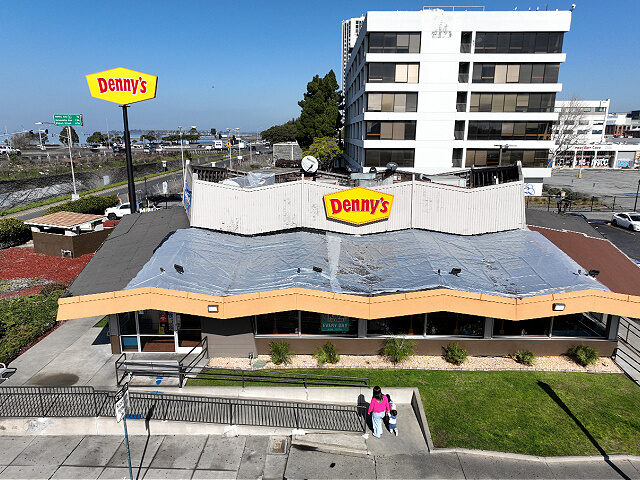The American institution known as Denny’s will be closing 150 restaurants over the next year while reducing its menu options and considering a change to its famous 24/7 operating schedule.
Denny’s announced the closings in an earnings call on Tuesday, saying it will close 50 locations by the end of 2024, roughly a tenth of its 1,375 locations in the United States. The company said that “underperforming restaurants” have been weighing down its overall bottom line. Per ABC 13:
Denny’s is targeting “underperforming restaurants” that are weighing down the company’s financial performance, according to Steve Dunn, Denny’s executive vice president and chief global development officer. The affected locations are either too old to be remodeled or in areas that have become unprofitable.
The chain, best known for never closing its doors, is also making a major concession with its franchisees over the requirement of remaining open 24/7. Since the pandemic, about a quarter of its restaurants have not returned to those around-the-clock hours, so Denny’s is easing up on the requirement for a franchise to do so.
Denny’s joins a broader trend of restaurants slashing hours since the pandemic. Major shifts in customer behavior, including earlier dinner times and drinking less alcohol late into the evenings, have held back a return to pre-pandemic patterns. Higher labor and food costs have also led restaurants to close earlier.
Denny’s will also be reducing its menu down from 97 items to 46 items, with the company noting that adults were ordering off the kids menu to save money.
This past June, the popular fish taco chain Rubio’s Coastal Grill closed 48 locations in California due to the “rising cost of doing business.” This was followed by the restaurant Hooters shuttering dozens of locations. In May, Red Lobster closed over 100 locations in the United States that were underperforming. The closures came after Breitbart News reported recently that inflation under the Joe Biden administration has caused fast food prices to soar.
“Fast food inflation has a disparate impact across racial and ethnic groups due to different levels of fast food consumption,” it noted. “According to the Centers for Disease Control and Prevention (CDC), 42.4 percent of non-Hispanic black adults consume fast food, compared with 37.6 percent of non-Hispanic white adults, 35.5 percent of Hispanic adults, and 30.6 percent of Asian adults.”
“The higher price tag of popular foods may be creating political problems for Biden. Thirty percent of black men and 11 percent of black women intend to vote for former President Donald Trump, a Wall Street Journal poll found, a dramatic increase from 2020,” it added.

COMMENTS
Please let us know if you're having issues with commenting.